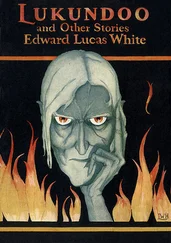Herbert Ward - A Republic Without a President, and Other Stories
Здесь есть возможность читать онлайн «Herbert Ward - A Republic Without a President, and Other Stories» — ознакомительный отрывок электронной книги совершенно бесплатно, а после прочтения отрывка купить полную версию. В некоторых случаях можно слушать аудио, скачать через торрент в формате fb2 и присутствует краткое содержание. Жанр: foreign_sf, foreign_antique, foreign_prose, на английском языке. Описание произведения, (предисловие) а так же отзывы посетителей доступны на портале библиотеки ЛибКат.
- Название:A Republic Without a President, and Other Stories
- Автор:
- Жанр:
- Год:неизвестен
- ISBN:нет данных
- Рейтинг книги:4 / 5. Голосов: 1
-
Избранное:Добавить в избранное
- Отзывы:
-
Ваша оценка:
- 80
- 1
- 2
- 3
- 4
- 5
A Republic Without a President, and Other Stories: краткое содержание, описание и аннотация
Предлагаем к чтению аннотацию, описание, краткое содержание или предисловие (зависит от того, что написал сам автор книги «A Republic Without a President, and Other Stories»). Если вы не нашли необходимую информацию о книге — напишите в комментариях, мы постараемся отыскать её.
A Republic Without a President, and Other Stories — читать онлайн ознакомительный отрывок
Ниже представлен текст книги, разбитый по страницам. Система сохранения места последней прочитанной страницы, позволяет с удобством читать онлайн бесплатно книгу «A Republic Without a President, and Other Stories», без необходимости каждый раз заново искать на чём Вы остановились. Поставьте закладку, и сможете в любой момент перейти на страницу, на которой закончили чтение.
Интервал:
Закладка:
The ransom was now ready for the President and their lady. It had to be accompanied by the national promise to secure freedom to those who delivered up the suffering couple. That was the third of July. Still the impotence of the nation in this new crisis filled thoughtful men with apprehension. Was it moral that cash instead of justice should be given to these stupendous criminals? What a precedent for infamous success! Of what avail courts of law and prisons if such consummate daring goes unpunished? Is there a portion of our national machinery out of gear? If so, which? Nevertheless the excitement was now beyond fever heat. It is safe to say that the temperature of the people had risen ten degrees when the news was flashed abroad that the "President's money," as it was called, had been unanimously voted by Congress. Tears streamed as patriots met each other. Many developed a new species of insanity in their suspense.
The country had now done its part toward the rescue of its chief magistrate and of his perishing consort. Would the abductors be true to their portion of the contract? Party strife had been forgotten in this new anguish. All Fourth of July demonstrations had been postponed until a loving people's thanksgiving for their President's safety could blend with the time honored celebration of a nation's birth.
But suspense was not long delayed. Promptly the New York Herald received a manifesto, this time the last, sent by the arch-conspirators to Congress and the people. This envelope was boldly postmarked Washington. This fact made those in the capital city almost afraid to stir from their homes lest unawares they might meet the demon in their midst who had dwarfed all principals in the records of crime up to the present date. But this final proclamation read as follows:
TO CONGRESS AND ALL AMERICANS.
We note your late and liberal response to our proposal. We shall not be outdone in the honorable discharge of obligations. At precisely eight (8) o'clock on the morning of July sixth (6th) the payment of ransom and delivery of captives will take place within one mile of Washington's homestead, Mt. Vernon. The government vessel with ransom and proper officials on board will remain in near sight of Mt. Vernon. At our signal (which shall consist of four Japanese day rockets, each representing a flaming sword) whether hurled from land or water, the officers of the government will steam toward the place of delivery. Guards will fall back immediately upon the discharge of whistling bombs until the ransom and the ransomed meet. The Presidential party will bear a flag, vertically striped black and crimson. On its centre will be a gold half-eagle. Payment must be made as follows: There must be eighty (80) leathern bags, each containing one hundred thousand dollars ($100,000) in gold; the amount of ransom being eight million dollars ($8,000,000) for four weeks' board at one million dollars ($1,000,000) a week apiece. This money must be paid and its genuineness certificated upon the honor of the United States by the Secretaries of State and of the Treasury. If there is any suspicion of infidelity on the part of the nation, the President and his wife will be held for another month on the same terms. Should we be betrayed in the trust which we have reposed in the American people, on the 6th of July, at, or previous to the time of delivery, the distinguished hostages will immediately be put permanently beyond reach of hope.
Unscrupulous and stern was the message, yet tinged with a spurious color of honor that demanded the true blue in return. It was the consensus of opinion that it would be madness to attempt arrest during the culminative ceremonies. The required gold was transferred from the treasury vaults to the new and swift cruiser Washington .
Final arrangements were made for giving the imprisoned couple the most glorious reception which ingenuity and patriotism could devise. Reporters by hundreds bivouacked on the grounds of Mt. Vernon on the night of the fifth. Gunboats, steamers, yachts and sail of every description congregated to the scene of the surrender. The land teemed with sight-seers and soldiers with stacked arms. In the midst of all this apparent disorder, Inspector Byrnes, on his own responsibility, had his thousand trained men, who patrolled every foot of ground within five miles of the historic site, and who had surveyed every inch of water from the mouth of the Potomac to the city of Washington. He had hoped to retrieve his fame by a successful capture at the eleventh hour.
At last, though it seemed a century in coming, the morning of the sixth of July broke solemnly upon Mt. Vernon. The revered site was flanked on all sides by seething, excited, hopeful humanity such as these historic shores had never before witnessed. The official command had been to abstain from all noise and confusion on land or water from the time of the sunrise gun.
The cannon boomed from the new navy. Then came the hush. The last hours of waiting were spent in maddening inactivity, in strained repose. From what quarter would the ominous signal be seen? Who would catch the first glimpse of the boldest and most successful gang of malefactors that this country had ever produced?
PART II
Colonel Oddminton was a widower, with only one son, fifteen years old. It was natural, then, that the colonel himself should balance between forty-five and fifty years of age. Let the fact only be whispered in desert places that the colonel was no more a colonel than you are. He had never smelt powder, except when shooting mallard ducks. He never had seen a regiment, except when it was marching on Decoration Day peacefully through the woebegone streets of Charleston, preparatory to a good dinner. His nearest idea of regalia and medals consisted of the many adornments worn by Queer Fellows or any other order of Honorable Unextinguished Redskins as they either laid a corner-stone or a comrade ceremoniously in the ground. Where could he have lived and not have been an active partisan in the stirring days of our devastating civil war? Surely, not in the United States!
Of English exile blood, that came over a hundred years ago, he would have been a thorough American had his parents and his environment permitted. His family had settled on one of the many Sea Islands that dot the coast of South Carolina, and there they had staid and raised the famous Sea Island cotton which is still successfully used, so fine its fibre, to adulterate a fashionable fabric. Like the baryte of Cheshire, the cotton of Oddminton Island became valuable as it became an ally to fraud. The one increased the weight of white lead; the other swelled the unlawful receipts of the manufacturers of silk. Oddminton Island did not follow the regular markets of trade. It always had its peculiar channels of commerce; its cotton had an undiscoverable destination.
The colonel, as we will still call him, was, from his earliest memory, sternly brought up under an atmosphere of uncanniness and secrecy, nor did he leave his fertile island, except, as we shall mention, until his father died and made him sole proprietor of land, slaves and family traditions. Fully two hundred acres were under cotton cultivation. The insignificant remainder was unentangled marsh.
Colonel Oddminton's father died in eighteen hundred and sixty-one. Then the colonel began to expand. He had two hobbies that consumed his imagination by day and agitated his visions by night. The one had been shared by his deceased parent, namely, an inordinate desire to be rich; not as wealthy as the richest family in Charleston, but as rich as all the merchants in the "City by the Sea" put together. Cotton had always given a comfortable living, but cotton was declining. It became unsatisfactory. It was not enough.
Colonel Oddminton's other hobby was a fast boat. He had always been a more than enthusiastic sailor. When the boy was only eighteen, his father had given him a ten-ton sloop and allowed him to go anywhere, provided he did not touch the mainland. This order was in accordance with the old man's peculiarities, but was strictly obeyed. With his black sailors the boy had cruised in every bay and inlet for a hundred miles about. Though no one else knew it, he was the best pilot those waters ever saw. During the war, when he was master, he never left his island except to put his own cotton aboard English blockade runners. In these hazardous attempts he never failed. This experience cultivated his native qualities of courage and of self-possession.
Читать дальшеИнтервал:
Закладка:
Похожие книги на «A Republic Without a President, and Other Stories»
Представляем Вашему вниманию похожие книги на «A Republic Without a President, and Other Stories» списком для выбора. Мы отобрали схожую по названию и смыслу литературу в надежде предоставить читателям больше вариантов отыскать новые, интересные, ещё непрочитанные произведения.
Обсуждение, отзывы о книге «A Republic Without a President, and Other Stories» и просто собственные мнения читателей. Оставьте ваши комментарии, напишите, что Вы думаете о произведении, его смысле или главных героях. Укажите что конкретно понравилось, а что нет, и почему Вы так считаете.











